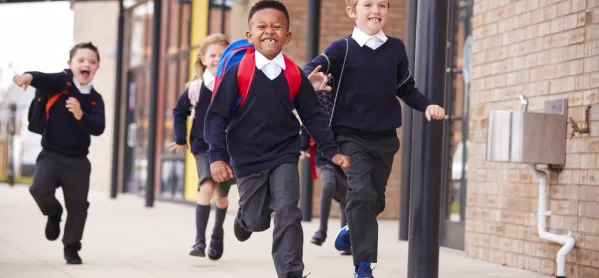The chair of the Commons Education Select Committee has called on the government to “consider” reopening primary schools at least partially after the February half-term, following comments from two government scientific advisers that it could be safe to do so.
Conservative MP Robert Halfon said that he hoped the government would consider reopening primary schools more widely to at least some year groups.
Boris Johnson: We hope to reopen schools from 8 March
Coronavirus: Teacher vaccine won’t help schools open, says top medic
Teacher vaccine row: When should school staff get vaccinated?
Mr Halfon’s comments come after Professor Robert Dingwall, a member of the New and Emerging Respiratory Virus Threats Advisory Group (Nervtag) committee, told The Daily Telegraph that it may be safe to reopen primary schools earlier than the government’s proposed date of 8 March.
“I worry about the schools and the impact on children,” Mr Halfon said.
“When someone on the government advisory body says [primary schools should reopen] and you get the Public Health England information that was released last week...about primary schools being safe and low vectors of transmission, my hope is that the government will at least consider primary schools opening after half-term, and if not the whole school, one or two years at least as has happened previously.”
Coronavirus: When should schools be reopened?
However, Mary Bousted, joint general secretary of the NEU teaching’ union, said: “The scientific advice is the scientific advice. We don’t second guess that. The NEU acts on advice from the SAGE [Scientific Advisory Group for Emergencies] minutes, and scientists have every right to give their own views in a personal capacity.
“The views among scientists are different...there’s a range of scientific evidence and in the end it is up to government to make decisions. The fact of the matter is we still have very high rates of infection, very high rates of hospitalisation and the worst thing the government can do is to end the lockdown prematurely and enter another lockdown, and I think Boris Johnson is very aware of that.
“The NEU, like Boris Johnson, want schools to be open as soon as possible, but we want them to be open safely and securely, and that means that the science has to support their openings and the prime minister says he will make a decision on the 15th and announce it on the 22nd, and schools will have a two-week notice period.
“If we’re going to do this, let’s do it properly.”
Professor Dingwall told The Daily Telegraph: “Many people looking at this think it’s a tolerable risk to get the kids back, as the Scots are doing.
“We could start getting primary school children back after half-term, and there really isn’t a case for keeping all kids off until March,” he added, speaking in a personal capacity.
On whether England should follow Scotland’s lead, Mr Halfon said: “I think it depends what our health coronavirus rates are compared to Scotland. The point I am making is I follow the guidance from government scientists and, given what he said and what PHE said, at least consider a full or partial opening of primary schools after half-term.”
He added that he was not “a lockdown sceptic” and that he was committed to following scientific guidance on the issue of school closures.
